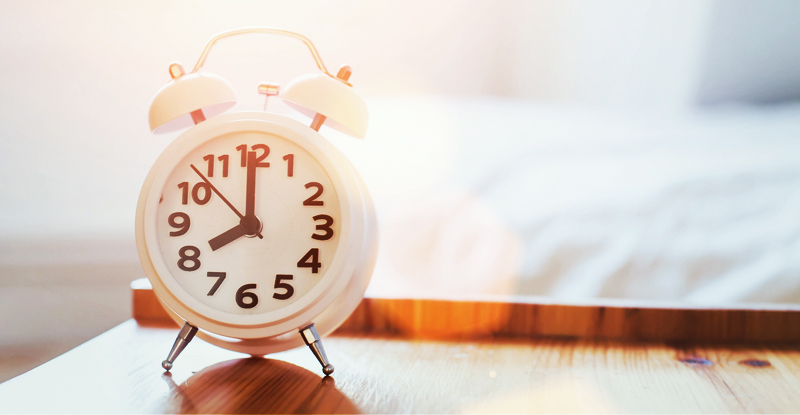How Much Sleep Do I Need?
Although science has not yet uncovered why we need sleep, we know that we do. Getting enough sleep plays a critical role in our health and everyday lives.
Costs of sleep deprivation
Today’s society normalizes staying up late to work, study, hang out with friends, or perform household chores. But missing even one or two nights of sleep can affect mood, judgment, and ability to learn and retain information. No one wants these problems following them to work or school, where missing sleep not only reduces productivity but increases errors and accidents. Long-term sleep deprivation may lead to cardiovascular disease, diabetes, obesity, and even early mortality.
How much sleep do I need?
Everyone is different. When it comes to sleep recommendations, researchers use ranges instead of one number. These ranges vary with age.
| Age group | Hours of sleep each day |
| Newborns (0–3 months) | 14–17 hours |
| Infants (4–11 months) | 12–15 hours |
| Toddlers (1–2 years) | 11–14 hours |
| Preschoolers (3–5) | 10–13 hours |
| School-age children (6–13) | 9–11 hours |
| Teenagers (14–17) | 10 hours |
| Younger adults (18–25) | 7–9 hours |
| Adults (26–64) | 7–9 hours |
| Older adults (65+) | 7–8 hours |
How to sleep better
If you scanned that chart and thought, “I get way less sleep than that,” adding Zs to your nights could improve your energy and sharpness during the day. Even if you think you get enough sleep but often feel tired, you may benefit from good sleep hygiene. For example, if you regularly fall asleep on your sofa, you may not be getting enough sleep in your bed. Or maybe your sofa is more comfortable than your bed! In either case, building good sleep habits is the key.
If you are having trouble sleeping, try these tips.
- Stay in sync with your body’s natural sleep pattern. Try going to sleep and getting up at the same time each day — even weekends. This habit will help set your body’s own alarm clock.
- Avoid sleeping in. This decadent pleasure may do more harm than good. You might experience jet-lag type symptoms. Small naps can help you catch up on sleep after a late night.
- Be smart about napping. Short naps (10–20 minutes) are ideal. Try not to go over 20 minutes. If your naps often stretch past 30 minutes, this may be a sign you are not getting enough sleep. Or it could mean the sleep you get is not quality sleep.
- Control your exposure to light. Try to expose yourself to as much daylight as possible and limit screen time starting one to two hours before going to bed.
- Regular exercisers report better sleep and less drowsy feelings during the day. Exercise increases the amount of time you are in deep, restorative stages of sleep.
- Wind down and clear your mind. An overstimulated brain during the day becomes hard to turn off at night. Try deep breathing, progressive muscle relaxation, or guided imagery techniques to ease your mind before bed.
- Create a restful sleep environment. Keep noise down, temperatures cool, make sure your bed is comfortable, and use it only for sleep and sex. Don’t watch TV or study in bed.
Making small behavior changes might be your golden ticket to peaceful nights and happier days!
Sources:
http://www.gallup.com/poll/166553/less-recommended-amount-sleep.aspx
http://www.helpguide.org/articles/sleep/how-to-sleep-better.htm
http://healthysleep.med.harvard.edu/healthy/getting




